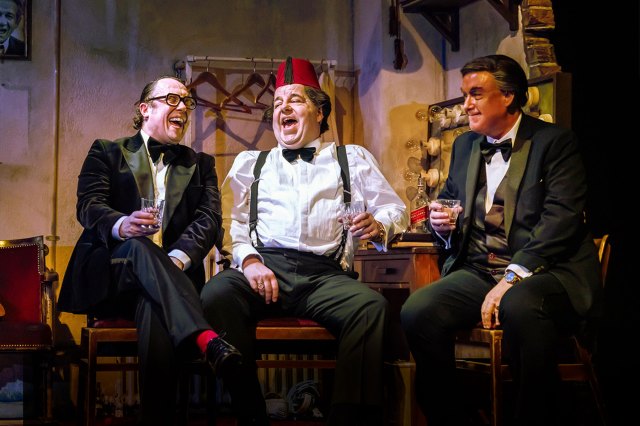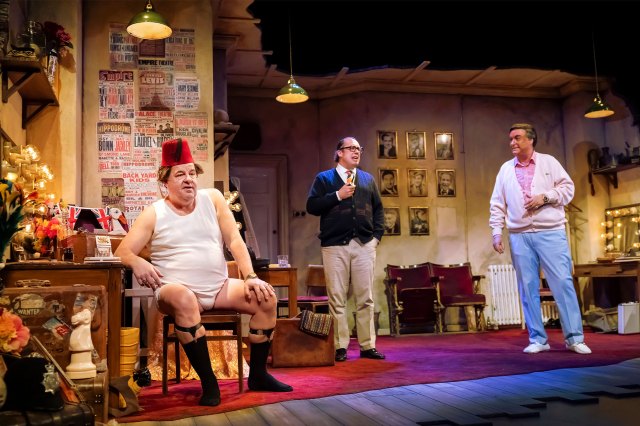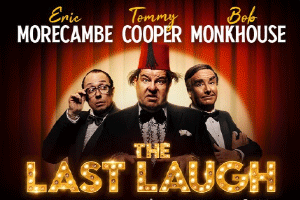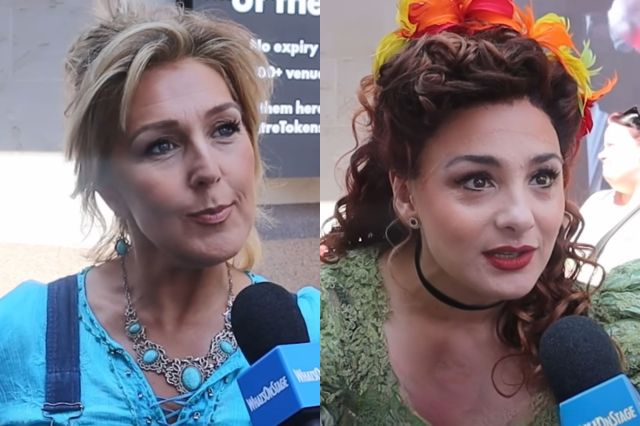The Last Laugh in the West End and on tour – review
Paul Hendy’s comedy, re-imagining the lives of Tommy Cooper, Eric Morecambe and Bob Monkhouse, runs at the Noël Coward Theatre until 22 March ahead of a UK tour

This affectionate tribute to three legends of comedy – Tommy Cooper, Bob Monkhouse and Eric Morecambe – has arrived in the West End for a short run following stints at the Edinburgh Fringe and on tour, bringing with it a trio of sublime performances.
Written by Paul Hendy based on his 2017 short film, it sees the three funnymen share a dressing room for one final time, ruminating over the meaning of a comedian’s life and reliving some of their best-loved gags, routines and songs. Cooper (Damian Williams) appears first, in pants, vest, chicken feet and his trademark fez, seemingly preparing for a show. The wall has a gallery of headshots of past comedy greats – with an ominous space.
He’s soon joined by Monkhouse (Simon Cartwright), carrying his weighty joke books, and Morecambe (Bob Golding), who enters with “I thought this was the comedians’ dressing room”. Much of it feels like an elongated gag-off as the three trade one-liners and compete for the last laugh. The overwhelming impression is that an evening in their company would be exhausting. But the three actors, who’ve all got form in these roles (Golding won an Olivier for the one-man play Morecambe), are so adept at capturing every distinctive physical tic and vocal inflection, that it almost seems like a kind of seance for comedy fans.

Amid the multitude of zingers (which I won’t spoil) there are serious reflections on the darker aspects of a life in entertainment. The dinginess of Lee Newby’s dressing room set highlights the fact that much of their time has been spent in similar rooms; Cooper relays the experience of crying in distress and a crowd of people laughing regardless. The heart attacks and alcoholism seem understandable responses to the pressures of always being the clown. Monkhouse, though seemingly the most sober of the three, wrestles with demons including the suicide of his former comedy partner.
If it occasionally slides into over-sentimentality and mawkishness, particularly in the closing moments, that feels forgivable. The memory of these comedy greats is fading fast – it’s over 40 years since Cooper and Morecambe died – kept alive largely by YouTube clips and Christmas repeats. Monkhouse’s insistence on identifying the provenance of jokes (many of them his own) seems an apt reminder of our wider debt to that generation, on whose shoulders today’s booming comedy sector stands. This is a welcome chance to remember what made them so beloved, and at a brisk 80 minutes, it leaves you aching for more – just like the comics themselves.
















